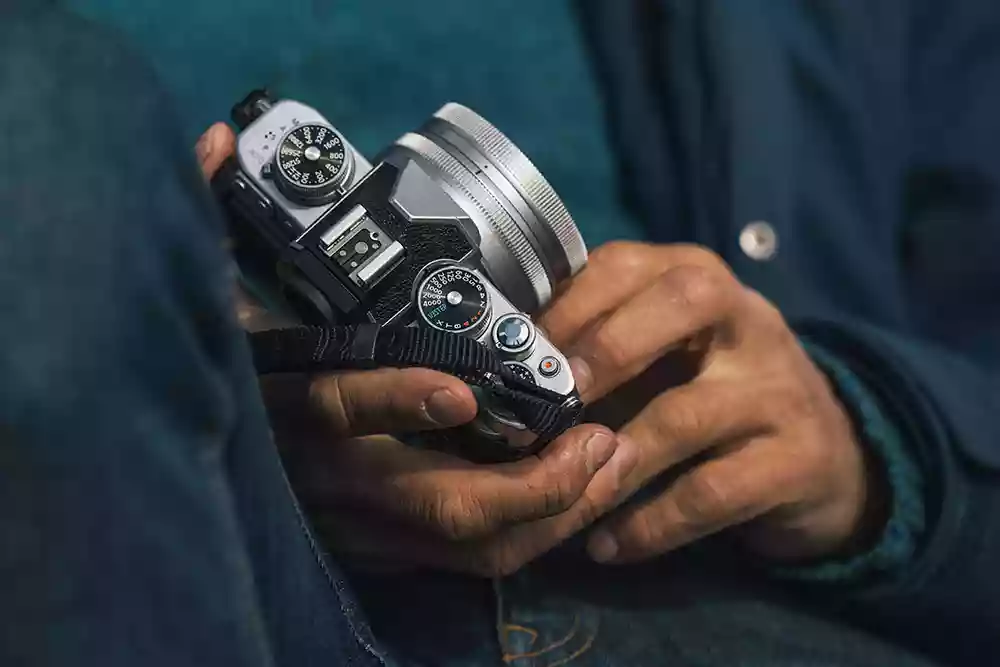- Call us: 01444 237070
- Contact Us
- Stores
- Sign In / Register
-
- Back
- Used Cameras
- Used Accessories
- Used Lenses
- Used Video
- Used Film Equipment
- Used Stock Alert
- Used Blank Test
- Sell or Part Exchange
- Used Clearance
- Recently Added Used Equipment
- Park Picks
- All Used Black Friday Deals
- Faulty
- Trade-In
- Blog
- New in
- Call us
- Contact us
- Stores
- Sign in
- Categories
- Tips & Inspiration
- Reviews
- News
- Events
- Features
- Buying Guides
- Competitions
Nikon Goes Retro With The Z fc Camera
There’s a healthy number of camera aficionados who love the experience of photography, analogue dials, quick buttons and a retro design to immerse themselves into. With those users in mind, Nikon has reinvented their classic FM2 film camera, morphing it into a modern mirrorless Z body, which delivers more than just heritage styling. Read our Z fc Camera review, watch the video and check out some sample images direct from Nikon.
Please note that we have an updated hands-on Nikon Z fc Review, with more sample photos and a Z f camera comparison to accompany this review.
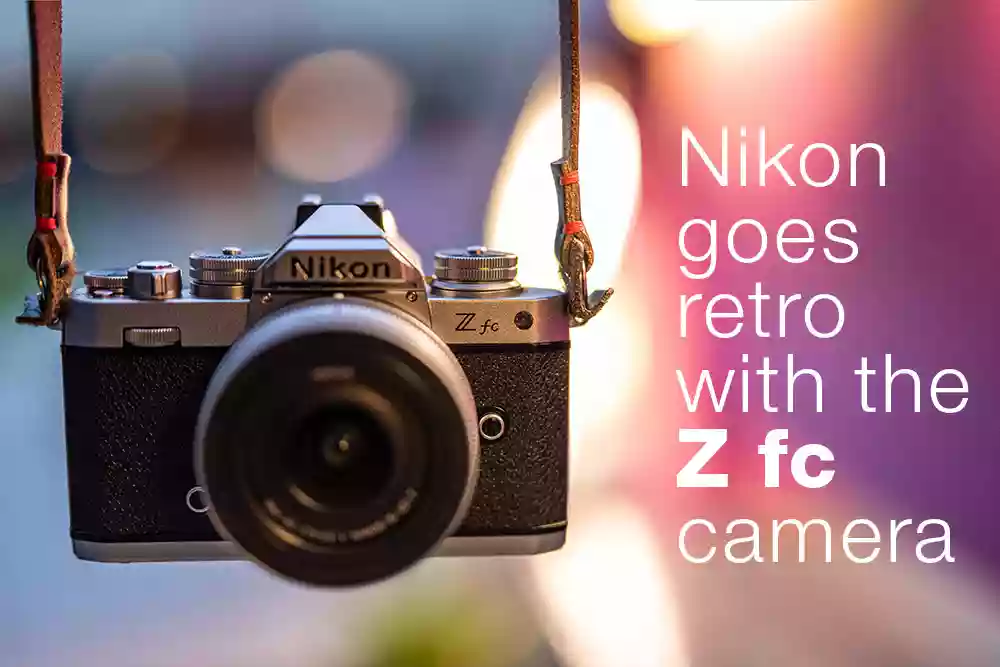
What’s the Nikon Z fc Camera all about?
Nikon has been beavering away expanding their mirrorless camera line-up for some time now. They recently updated both full frame Mark II versions of the Z6 and Z7 cameras. They announced the FX flagship Z9 coming soon and previously launched the only DX model, the award winning Z 50 from 2019.
With a number of models under their belts Nikon has turned their attention to existing mirrorless users and potentially newcomers to the system who love the immersive experience of photography with analogue dials and all. They scoured their back catalogue of analogue film cameras looking for the perfect model to reinvent for the mirrorless 21st century. And with that the popular FM2 went digital, arriving as the crop sensor Z fc camera.

What are the similarities between the FM2 and Z fc
The FM2 was a semi-professional, interchangeable lens, 35 mm film SLR camera and it was extremely popular throughout the 19 or so years it was in production from 1982. If you’re lucky you might see a used FM2 camera in our used film department, but they’re pretty hot right now so we might be out.
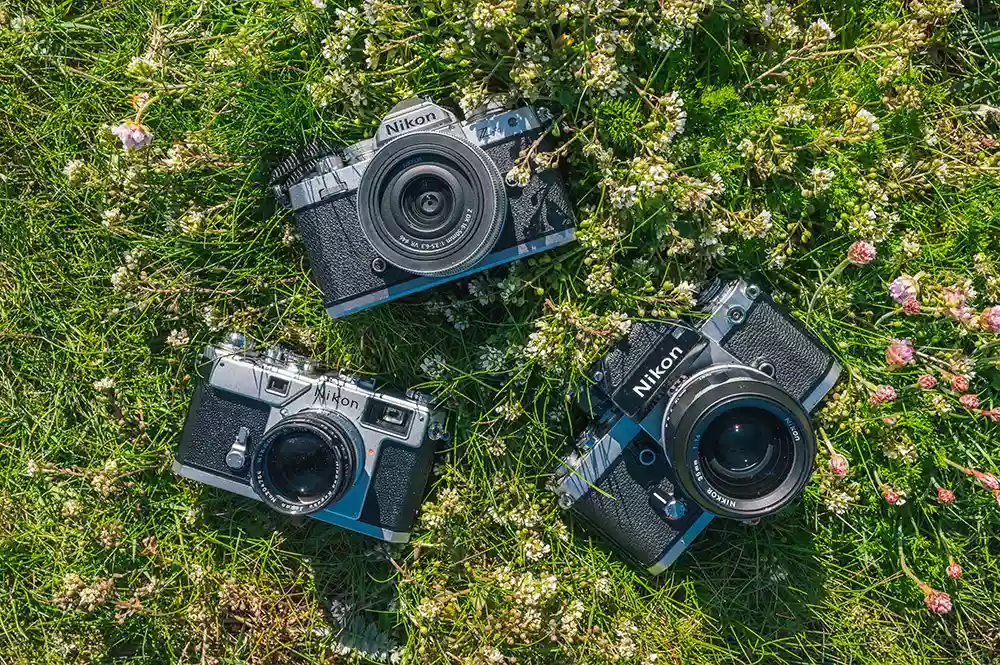
Nikon scrutinised what exactly made the original FM2 so loved and durable for their customers. They then reinvented it with a new digital model designed for todays user. Here are the headline design features, which are developed from the original film camera:
- A pentaprism design featuring a central viewfinder that sticks up from the body
- Classic vintage ‘heritage’ black and silver body design
- Circular eyepiece for the electronic viewfinder (EVF)
- Three top plate camera control dials
- An inscribed Nikon logo straight from the 1980’s
- The use of robust magnesium alloy for the body design
- The accompanying camera strap is all leathery retro and matches perfectly
- Even the packaging looks like it is proper old skool
It’s worth noting that the original FM2 was renowned for its’ durability, famed for the advanced materials used in its design, including a vertical shutter plane. If you’re into film cameras, Nikon has a page dedicated to the FM2 here.
In use the design closely reflects the original and provides an extremely tactile experience. The dials make a reassuring clicking sound and can be adjusted in increments from 1/3 stop for ISO to full stops for shutter speed. Two command dials also feel nice and solid and can be programmed to suit the user workflow. A lever, or switch lets you change between stills and video which is a nice touch, while the ‘i’ buttons and movie record are well placed for an all round enjoyable ergonomic feel in a vintage inspired design.
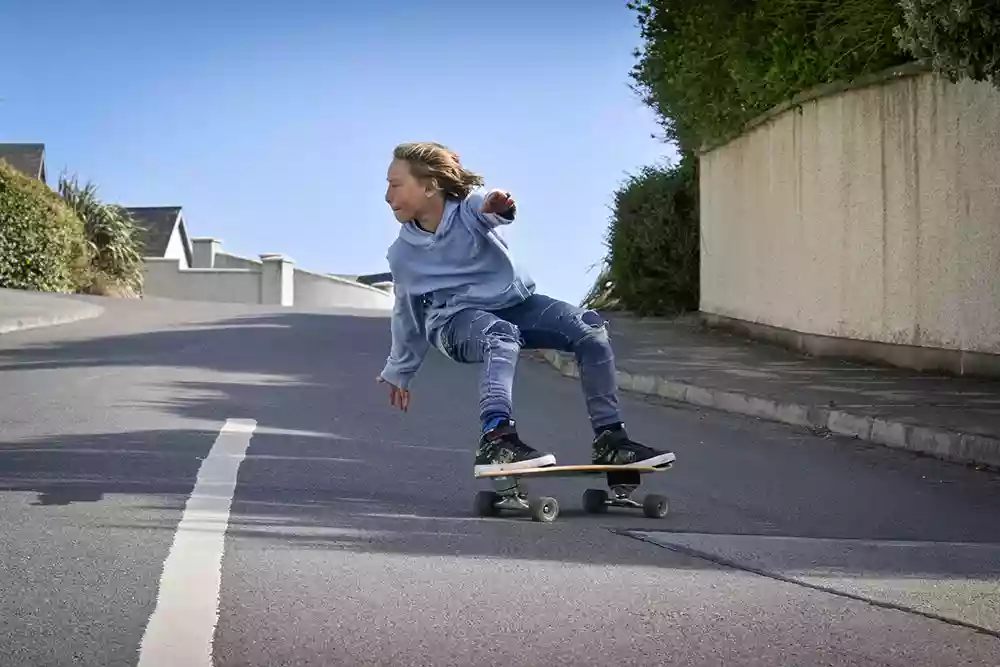
The modern mirrorless era and the Z fc
Whilst the outer design is based on a classic film camera, the inner workings of the 2021 Z fc are based around the 2020-2021 TIPA award winning Z 50 camera. It is a semi professional body too, capable of capturing images and videos which nobody could have dreamed of back in 1982.
Full Z fc full specifications
|
Model |
|
|
Image sensor |
23.5 × 15.7 mm CMOS sensor (Nikon DX format), Optical low-pass filter |
|
Effective pixels |
20.88 million |
|
Lens mount |
Z mount |
|
Viewfinder |
Electronic viewfinder, 0.39-in. XGA OLED, approx. 2360-dot. Frame coverage: approx. 100% in all directions (on actual screen), magnification: approx. 1.02× (when using 50mm lens, at infinity, -1.0 m-1) |
|
Shutter |
Electronically controlled vertical-travel focal-plane mechanical shutter; electronic front-curtain shutter, electronic shutter |
|
Shutter speed |
With shutter speed dial: 1/4000 to 4 seconds (1 step), Bulb, Time, X (Flash sync) With main command dial: 1/4000 to 30 seconds (1/3 step, extendable up to 900 s during M mode), Bulb, Time, X (Flash sync) X=1/200 seconds, synchronizes with shutter at 1/200 seconds or slower, auto FP high-speed sync supported |
|
Continuous shooting speed |
High-speed continuous shooting: 5.0 fps (with AF, live view between frames available), High-speed continuous shooting (extended): 11 fps (with AF/AE, JPEG or 12 bit RAW image quality, when using a mechanical shutter) |
|
ISO sensitivity |
Still images: ISO 100 to 51200, Hi 1 (ISO 102400 equivalent), Hi 2 (ISO 204800 equivalent), Videos: ISO 100 to 25600 |
|
Autofocus |
Hybrid AF (focal-plane phase-detection AF/contrast-detect AF), AF detection range: -4.5 EV (in still shooting, AF-S, ISO 100, f/1.8 lens, 20°C/68°F, low-light AF), number of focus points in still shooting: 209 (DX image area, single-point AF), Eye-Detection AF for human and animals (in still shooting and movie recording, auto-area AF, AF-A), focus peaking display in manual focus |
|
Metering method |
Matrix metering, center-weighted metering, spot metering, highlight-weighted metering, flicker reduction in still shooting |
|
Vibration reduction |
In-camera vibration reduction |
|
Flash |
No |
|
Image-processing engine |
EXPEED 6, Creative Picture Control supported |
|
Recording formats |
SD memory card (UHS-I support) Image format: RAW12-bit/14-bit, JPEG, simultaneous recording of both RAW and JPEG available |
|
Video |
Video compressions format: H.264/MPEG-4 AVC, file format: MOV or MP4, electronic vibration reduction available, video log (N-Log) output not supported |
|
Video recording pixels/frame rate |
3840×2160 (4K UHD): 30p/25p/24p, 1920×1080: 120p/100p/60p/50p/30p/25p/24p, 1920×1080 slow-motion: 30p (4×)/25p (4×)/24p (5×) |
|
Audio |
Built-in stereo microphone, use of external microphone is available, recording format: Linear PCM (MOV) or AAC (MP4) |
|
LCD monitor |
3.0-in. (3:2), approx. 1040-dot, touch-operational panel, vari-angle monitor (self-portrait supported) |
|
Top display panel |
Yes (only for aperture display) |
|
Battery |
EN-EL25, USB charging available with EH-7P AC adapter (optional) |
|
Interface |
USB cable (Type C: SuperSpeed USB), HDMI micro connector (Type D), plug-in power microphone support, stereo mini-jack (Φ3.5 mm), Accessory Shoe |
|
Communication |
SnapBridge Ver.2.8 support, In-body Wi-Fi/Bluetooth, WT-7 not supported |
|
Dimensions (W × H x D) |
Approx. 134.5×93.5×43.5 mm/5.3×3.8×1.8 in. |
|
Weight |
Approx. 445 g/15.7 oz. (with battery and SD memory card but without body cap), Approx. 390 g/ 13.8 oz. (body only) |
Designed for content creators
The big additions over the previous Z 50 designed for content creators include a first for Nikon mirrorless cameras, which is a fully articulating LCD touchscreen (or vari-angle monitor). This has automatic sensing so when it’s rotated to the front, the camera automatically switches to self-portrait mode. This makes selfie photos and vlogging super easy with instant touch operation and easy framing. The new camera is a hair lighter than both predecessors weighing in at 445g. Whilst not featherweight this is one of the lighter mirrorless cameras around, which will definitely suit anyone vlogging and making social content.
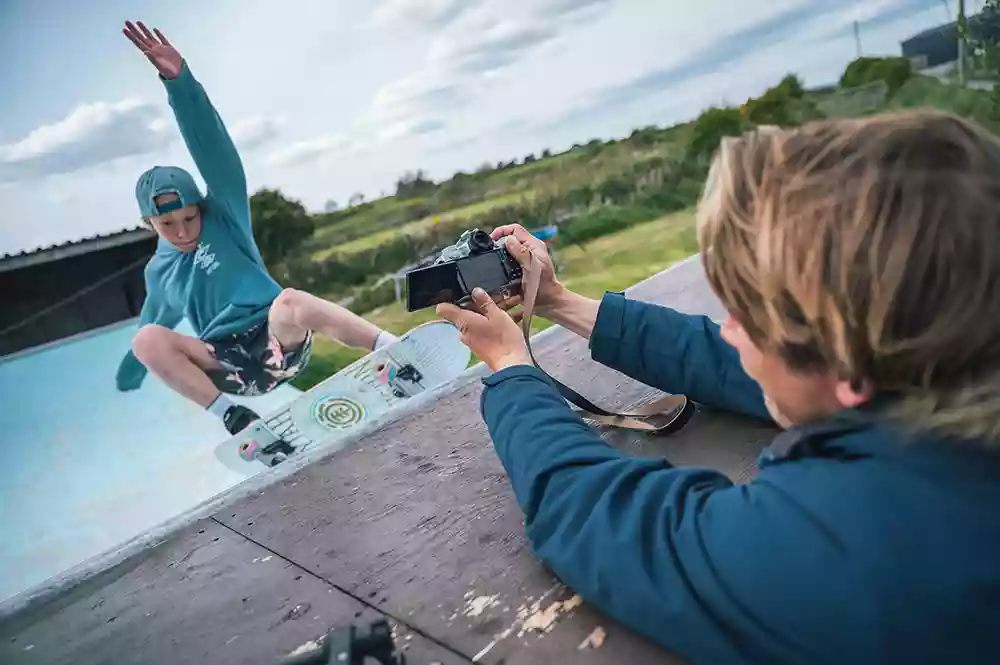
It has a built in stereo mic, as well as an external microphone socket which is essential for broadcast audio quality. Live streaming or web cam functionality is a breeze thanks to a combination of USB charging with an optional EH-7P AC adapter, USB power delivery and USB charging. Check our blog post here for how to use a camera for live streaming. The rise in WFH has lead to a rise in quality options for ZOOM and other meetings and our post has a link to Nikon’s free software. Speaking of software Nikon updated their popular Snapbridge to version 2.8 with this camera release. The latest version lets you transfer photos through a new interface even when not in use and lowers power consumption in background mode.
Back to content creation on the camera itself and we can see that Nikon has retained 4K movies in 30fps as well as 120 fps high speed in FHD 1920×1080. Unfortunately N-Log isn’t supported, although you do get a flat profile option from Nikon which does scrub up very nicely, so there is an option for colour grading.

Nikon Z fc with Z 16-50mm f/3.5-6.3 Lens
It is worth noting however that the full 23.5 × 15.7 mm area of the sensor is used for 4K video. There’s no crop which results in very smooth movies that have excellent detail and sharpness.
Another addition over the Z 50 is the inclusion of the latest Eye-Detection AF and Animal-Detection AF straight from the flagship Z7 II (and Z6 II cameras). This is a big leap in focus ability with fast and accurate subject acquisition and tracking. This works for both stills and video too, with full-time AF (AF-F) dedicated for video recording.
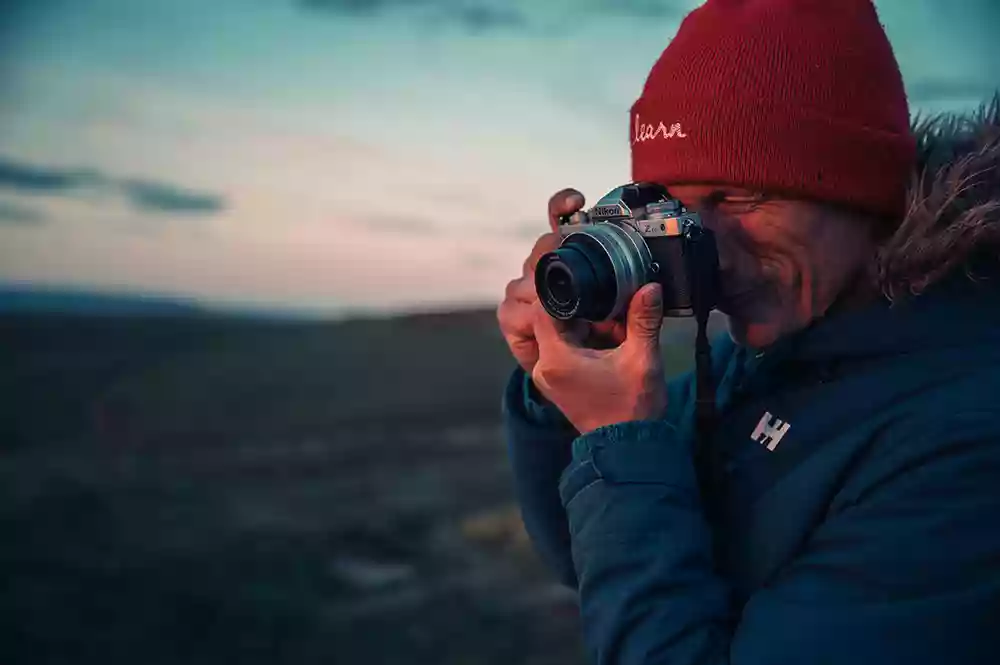
Video Review
Our in-house reviewer Gareth got his hands on a Z fc Camera and shares his thoughts in this video review below.
Crop sensor body and lens options
Retro style cameras are not a new phenomenon and are often found with DX sensors (APS-C). This is with good reason as it allows the manufacturer to keep the body and compatible lenses compact and lightweight. This is the case with the Nikon Z fc which measures in at a very compact size and lowly 445g fully loaded. If you’re playing with analogue dials the last thing you want is a burly 1.2kg camera which doesn’t balance well in the hand.
The same logic applies to DX format lenses which are notably smaller and lighter than their full frame counterparts. The new body is available with several kit lenses (even with two lenses) which may well appeal to newcomers to Nikon’s mirrorless Z system as it gives them everything they need straight off the bat. If you’ve got content ideas but no kit, it’s nice to get everything you need in one retro styled package.
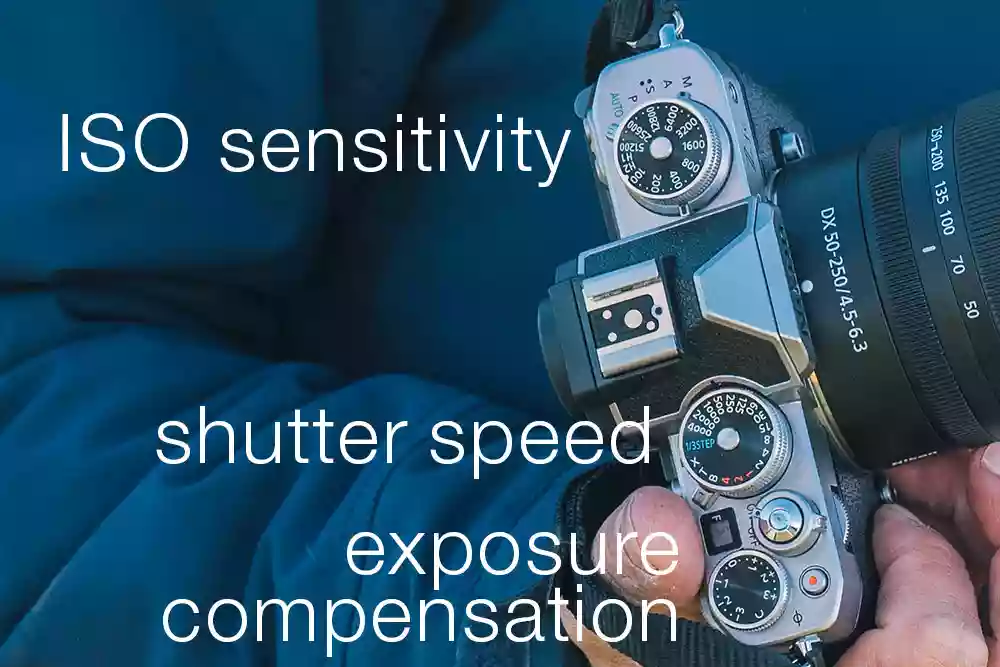
Nikon redesigned a couple of lenses to fit with the heritage design style of the Z fc body and it has to be said they look perfect mounted on the camera.
Which lens kits are available?
- Nikon Z fc with Z 28mm f/2.8 SE Lens Kit - this equates to a 42mm prime lens, perfect for a variety of situations with a slightly wide standard and extremely portable set-up
- Nikon Z fc with Z 16-50mm f/3.5-6.3 Lens Kit - I reckon this will be the most popular as it provides a full frame equivalent of 24-75mm, which is even better than workhorse 24-70mm focal range.
- Nikon Z fc with Z DX 16-50mm f/3.5-6.3 And Z DX 50-250 f/4.5-6.3 Kit - Get two lenses with your camera for the most focal ground around.
You can also get the newly updated Nikkor Z DX 16-50mm f/3.5-6.3 SE VR Silver Edition Lens on its own. The Z 16-50mm lens is extremely popular as mentioned thanks to a broad focal range. It also resolves beautiful detail and captures sharp videos. All of these lenses offer in-lens vibration reduction as does the camera body. With slightly slower apertures that’s a benefit which will appeal to many users regardless of whether they make images or videos. The prime 28mm kit is sure to be a huge success thanks to its size, design and versatile standard focal width.

Nikon Z fc with Z 16-50mm f/3.5-6.3 Lens
Accessories
Naturally the new camera body is accompanied not only by some beautiful retro glass but also a couple of accessories. These come in the form of a GR-1 body grip, which adds ergonomic bulk and a replacement DK-32 Rubber Eyecup in case yours goes astray.
The battery is the same as that found on the Z 50, which is the high power EN-EL25. You can add an external microphone (3.5mm jack, not XLR) as well as a single SD memory card in UHS-I. Something like the Sandisk Extreme Pro 64GB 170MB/s Class 10 UHS-I or the 128GB version will give you enough room to record some video as well as shoot stills.

Nikon Z fc with Z DX 50-250 f/4.5-6.3 Lens
Summary
It was a brilliant idea for Nikon to introduce its first retro style mirrorless camera and they’ve entered the market guns blazing with a beautifully designed and accomplished first model. Their DX (and FX) sensors are outstanding, delivering superb low light performance, with plenty of latitude to push and pull highlights and shadows in post production.. Autofocus has been updated with the latest algorithms for Eye-Detection AF and Animal-Detection AF, keeping up with most fast moving subjects. A flip out touchscreen works for vloggers and difficult shooting angles. The camera also has beautiful retro dials which I personally enjoy using on other cameras. A slightly analogue experience makes you think about photography in a different way, less laser yet more focused perhaps. It looks chic and I’m sure it will be a big hit with amateurs as well as experienced enthusiasts who admire classic styling but crave modern technology.
We hope this round up of the retro Nikon Z fc Camera was useful. Check out our other camera and lens reviews including a number of Nikon mirrorless deep dives.
Share this post:
By Nick Dautlich on 29/06/2021
Nick Dautlich
Senior Content Writer and Product Reviewer
Nick Dautlich is the Senior Content Writer and Product Reviewer at Park Cameras, with over 15 years of photography experience. A Sony Imaging Professional and expert reviewer, Nick has worked with major brands such as Canon, Sony and Nikon. His work is also featured on Vanguard World UK’s website, Capture Landscapes, and Shutter Evolve. Nick’s photography includes National Trust projects and magazine covers and he is passionate about landscapes and storytelling. Nick also enjoys hiking and teaching his children about nature. Learn more on his profile page.
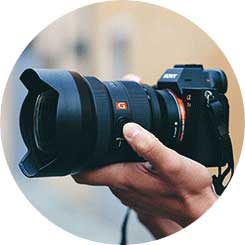
Trade in your old equipment
Fast and easy trade in service ensures your old gear is collected efficiently and you are paid quickly! It's very simple to trade in your unwanted photography gear. Just head over to our dedicated Sell or Part Exchange page, fill out the details, and we'll get back to you with an offer for your old gear. Take the cash, or put it towards the cost of your new gear. It's up to you! Find out more
sign up to the newsletter
Keep up to date on the latest photography news, events and offers. Sign up now

